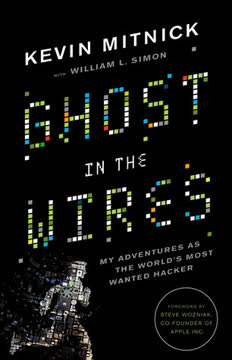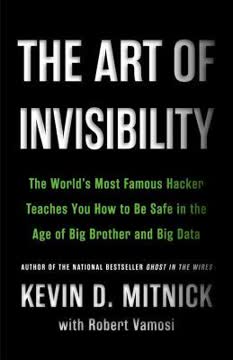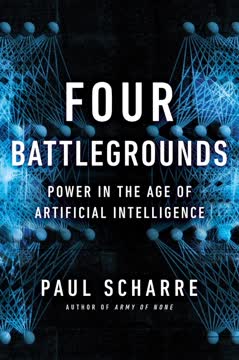Key Takeaways
1. Cyber operations are powerful tools for shaping geopolitics
Hacking has earned its place in the playbook of statecraft.
Versatile and impactful. Cyber operations have become an essential tool for nations to gain advantages over their rivals. They offer a wide range of capabilities, from espionage and sabotage to destabilization and coercion. Unlike traditional military operations, cyber attacks can be carried out with relative stealth and deniability, making them an attractive option for states seeking to advance their interests without risking open conflict.
Evolving landscape. The cyber domain has seen rapid evolution over the past two decades. What began as primarily covert espionage operations has expanded to include:
- Targeted sabotage (e.g., Stuxnet attack on Iranian nuclear facilities)
- Overt attacks on infrastructure (e.g., Russian attacks on Ukrainian power grid)
- Large-scale information operations (e.g., Russian interference in the 2016 US election)
- Widespread disruption campaigns (e.g., NotPetya malware)
As cyber capabilities continue to advance, they are likely to play an increasingly central role in geopolitical strategy and conflict.
2. The "home-field advantage" in signals intelligence
The United States and its allies have what some in the NSA call a "home-field advantage" when it comes to cyber operations.
Geographic and technological edge. The US and its Five Eyes partners (UK, Canada, Australia, New Zealand) benefit from their strategic positions along key global communication routes and their control over major tech companies. This advantage allows them to:
- Tap into undersea cables and internet exchange points
- Access data stored by US tech giants like Google and Facebook
- Exploit their legal frameworks to compel cooperation from tech companies
Passive collection at scale. The NSA's Special Source Operations division leverages this advantage to conduct massive passive collection of global communications. Key programs include:
- PRISM: Direct access to user data from major internet companies
- Upstream collection: Tapping into the internet's backbone infrastructure
- Transit authority: Collecting foreign-to-foreign communications as they pass through US networks
This home-field advantage enables the US to gather intelligence on a scale that would be difficult or impossible for most other nations to match.
3. The ongoing battle to defeat encryption
Cryptography poses an obvious threat to espionage and some law enforcement efforts. It reduces intercepted communications to gibberish, preserving the secrets within.
Cryptographic arms race. As encryption becomes more widespread and sophisticated, intelligence agencies are engaged in a constant struggle to maintain their ability to access protected communications. Key strategies include:
- Exploiting weaknesses in encryption algorithms (e.g., the Dual_EC_DRBG backdoor)
- Compromising key generation and distribution systems
- Targeting the endpoints before encryption occurs
- Developing quantum computing capabilities to break current encryption methods
Balancing act. The push to defeat encryption creates tension between security agencies and tech companies, as well as raising concerns about privacy and civil liberties. The debate over "exceptional access" or "backdoors" for law enforcement remains contentious, with no clear resolution in sight.
4. Strategic espionage campaigns reshape global power dynamics
China had good reasons to undertake such an aggressive and multi-faceted espionage campaign. It had lagged behind the United States for decades in both business and geopolitical competition.
Massive scale and impact. China's cyber espionage efforts have been unprecedented in their breadth and depth. Key targets include:
- US government agencies and defense contractors
- Major technology and manufacturing companies
- Research institutions and universities
- Critical infrastructure operators
The economic impact of this campaign has been estimated in the hundreds of billions of dollars, representing what former NSA Director Keith Alexander called "the greatest transfer of wealth in history."
Strategic objectives. China's cyber espionage serves multiple goals:
- Accelerating technological development by stealing intellectual property
- Gaining military advantages through theft of defense secrets
- Enhancing economic competitiveness in key industries
- Supporting broader geopolitical ambitions (e.g., Belt and Road Initiative)
The success of these efforts has significantly altered the global balance of power, allowing China to rapidly close gaps with the US in various critical domains.
5. Counterintelligence in the digital age
To understand contemporary statecraft, one must understand these shaping operations and their cumulative strategic effects.
Proactive defense. Modern counterintelligence increasingly relies on offensive cyber operations to protect against and understand adversary activities. Key tactics include:
- Hacking the hackers: Compromising adversary infrastructure to observe their operations
- Fourth-party collection: Intercepting intelligence gathered by other nations
- Developing sophisticated malware detection and analysis capabilities
Strategic insights. Counterintelligence operations provide valuable information beyond just defending against attacks. They offer:
- Understanding of adversary capabilities and intentions
- Identification of intelligence targets and collection priorities
- Opportunities to feed disinformation to rival agencies
The NSA's Territorial Dispute (TeDi) program exemplifies this approach, tracking and categorizing the activities of dozens of foreign hacking groups to better defend US networks and exploit adversary operations.
6. From covert sabotage to overt cyber attacks
Whereas Stuxnet and Wiper sought to be silent and stealthy, Iran's operations aspired to be loud and disruptive.
Evolution of cyber conflict. The trajectory of cyber operations has moved from purely covert activities to increasingly overt and destructive attacks. This shift is exemplified by:
- Stuxnet (2010): Covert sabotage of Iranian nuclear facilities
- Shamoon (2012): Destructive attack on Saudi Aramco's computer systems
- Iranian attacks on US banks (2012-2013): Overt denial-of-service campaigns
- Sony Pictures hack (2014): Destructive attack with public data leaks
Signaling vs. shaping. While some cyber attacks attempt to send geopolitical signals, they often struggle to achieve clear communication of intent or credible threats of escalation. Instead, cyber operations are more effective at directly shaping the strategic environment through:
- Espionage and intelligence gathering
- Sabotage of key infrastructure or capabilities
- Economic damage to adversaries
- Undermining public trust in institutions
The difficulty in calibrating cyber attacks and controlling their spread (e.g., NotPetya) further complicates their use as precise signaling tools.
7. Election interference and the weaponization of information
The Russian operation in 2016 was an attempt to shift the ground beneath the feet of American democracy.
Multi-pronged approach. The Russian interference campaign combined multiple tactics:
- Hacking and leaking sensitive emails from the DNC and Clinton campaign
- Creating and amplifying divisive social media content
- Exploiting existing social and political tensions
- Targeting election infrastructure (though no evidence of vote tampering)
Lasting impact. While the exact effect on the election outcome remains debated, the operation had significant consequences:
- Undermining public trust in democratic institutions
- Exacerbating political polarization
- Exposing vulnerabilities in social media platforms and election systems
- Inspiring similar operations by other state and non-state actors
The 2016 election interference served as a wake-up call, highlighting the power of information operations and the need for improved cybersecurity in democratic processes.
8. The rise of widespread disruption and destabilization
NotPetya ranks as the costliest and possibly the most important cyber attack in history.
Indiscriminate damage. The NotPetya malware, attributed to Russia, marked a new era of cyber attacks designed for widespread disruption. Key features:
- Self-propagating worm utilizing stolen NSA exploits
- Masquerading as ransomware while actually destroying data
- Causing over $10 billion in damages to companies worldwide
Strategic implications. NotPetya and similar attacks demonstrate:
- The potential for cyber weapons to cause massive collateral damage
- The difficulty in containing and attributing such attacks
- The blurring of lines between targeted operations and acts of war
- The vulnerability of global supply chains and interconnected systems
These types of attacks raise challenging questions about deterrence, retaliation, and the norms of acceptable behavior in cyberspace.
9. Exposure as a weapon in cyber operations
Exposure does damage. Most significantly, as Panetta noted, the NSA must rebuild a great deal of its tooling and operational procedures in the aftermath of any serious breach.
The Shadow Brokers saga. The mysterious release of NSA hacking tools by the Shadow Brokers group illustrates the power of exposure as a weapon:
- Compromised valuable NSA capabilities
- Enabled other actors to conduct powerful attacks (e.g., WannaCry, NotPetya)
- Damaged the NSA's reputation and operational security
Strategic leaking. State actors increasingly use selective leaks and public disclosures as part of their cyber strategies:
- Revealing adversary operations to neutralize their effectiveness
- Embarrassing rival agencies and undermining their credibility
- Shaping public narratives around cyber conflict and espionage
The threat of exposure creates a constant tension in cyber operations, forcing agencies to balance the potential benefits of a capability against the risks of it being discovered and revealed.
Last updated:
FAQ
What's The Hacker and the State about?
- Cyber Operations Focus: The book examines how cyber attacks have become essential tools in modern geopolitics, evolving from espionage to sabotage and destabilization.
- Historical Context: Ben Buchanan provides a historical overview of significant cyber incidents involving nations like the U.S., China, and Russia, linking them to broader international relations themes.
- Geopolitical Impact: It argues that cyber operations have reshaped traditional warfare and diplomacy, making them crucial in statecraft.
Why should I read The Hacker and the State?
- Modern Threats Insight: The book offers a deep dive into the complexities of cyber warfare, crucial for understanding its impact on national security and international relations.
- Accessible Analysis: Buchanan combines technical details with historical narratives, making the subject approachable for both technical and non-technical readers.
- Strategic Implications: It provides a framework for policymakers to understand and leverage cyber capabilities for strategic purposes.
What are the key takeaways of The Hacker and the State?
- Cyber as Statecraft: Cyber operations are integral to shaping geopolitical landscapes, used for manipulation, disruption, and destabilization.
- Home-Field Advantage: The U.S. and allies have an advantage in cyber operations due to control over key internet infrastructure.
- Operational Limits: Not all cyber operations succeed, as illustrated by various case studies in the book.
What are the best quotes from The Hacker and the State and what do they mean?
- “Hacking was a fundamental...tool of American statecraft.”: Highlights the integral role of cyber operations in modern geopolitical strategies.
- “The chaotic arena of cyber operations...”: Reflects the unpredictable and frequent nature of cyber warfare.
- “The struggle for advantage remains broad...”: Suggests the ongoing nature of cyber competition among states.
How does The Hacker and the State define cyber operations?
- Broad Definition: Cyber operations are actions by states to achieve strategic objectives through digital means, including espionage, sabotage, and destabilization.
- Types of Operations: Categorized into espionage, sabotage, and destabilization, each serving different strategic purposes.
- Operational Complexity: Success depends on careful planning and understanding of targets and environments.
What role does counterintelligence play in The Hacker and the State?
- Proactive Measures: Counterintelligence involves penetrating adversaries' operations to gather intelligence on foreign hackers.
- Secrecy Importance: Effectiveness often relies on maintaining secrecy to prevent adversaries from adapting.
- Case Studies: Examples like the NSA's tracking of Chinese hackers illustrate the dynamic nature of cyber espionage.
What are some notable examples discussed in The Hacker and the State?
- Stuxnet: A joint U.S.-Israel operation targeting Iran's nuclear centrifuges, marking a significant evolution in cyber warfare.
- Operation Aurora: A Chinese campaign targeting U.S. companies like Google, highlighting state-sponsored hacking's aggressive nature.
- Ukrainian Blackouts: Cyber attacks on Ukraine's power grid demonstrate the impact of cyber warfare on civilian infrastructure.
How does The Hacker and the State address the concept of signaling in cyber operations?
- Signaling vs. Shaping: Distinguishes between communicating intentions and manipulating environments, with cyber capabilities better suited for shaping.
- Signaling Challenges: Cyber operations often lack clarity and credibility, leading to misunderstandings.
- Case Examples: Illustrates how signaling attempts through cyber operations often fall short.
What is the significance of the Shadow Brokers in The Hacker and the State?
- Leaked NSA Tools: The group leaked powerful NSA hacking tools, exposing vulnerabilities and impacting global cybersecurity.
- Impact on Operations: Their actions led to widespread attacks like WannaCry, reshaping cyber warfare.
- Operational Security Challenges: Raised questions about the NSA's security and the utility of exposed tools.
How does The Hacker and the State explain the evolution of North Korean cyber capabilities?
- From Counterfeiting to Cybercrime: Traces North Korea's shift to sophisticated cybercrime, driven by the need for hard currency.
- Targeting Financial Institutions: Details systematic attacks on global financial institutions, showcasing growing ambition.
- Ransomware Use: Discusses ransomware like WannaCry as a revenue-generating and disruptive tool.
What are the implications of the NotPetya attack as discussed in The Hacker and the State?
- Widespread Disruption: NotPetya caused billions in damages, highlighting cyber operations' potential to disrupt infrastructure.
- Geopolitical Messaging: Served as a message to businesses in Ukraine about the risks of Russian aggression.
- Cybersecurity Lessons: Emphasizes the need for robust defenses against future attacks.
How does The Hacker and the State address the challenges of attribution in cyber operations?
- Attribution Complexity: Discusses difficulties in identifying attackers, complicating responses and deterrence.
- Case Studies: Examples like the DNC hack illustrate how attribution challenges hinder effective responses.
- National Security Implications: Calls for improved attribution methods to enhance accountability in cyberspace.
Review Summary
The Hacker and the State explores the role of cyber operations in geopolitics, covering major attacks like Stuxnet and NotPetya. Buchanan argues that cyber capabilities are better for shaping events than signaling intentions, unlike conventional weapons. The book provides a comprehensive overview of state-sponsored hacking, detailing operations by various countries. Readers appreciate its analytical approach and historical context, though some found certain sections overly detailed. Overall, it's considered an informative and well-researched examination of cybersecurity's impact on international relations.
Similar Books










Download PDF
Download EPUB
.epub digital book format is ideal for reading ebooks on phones, tablets, and e-readers.




